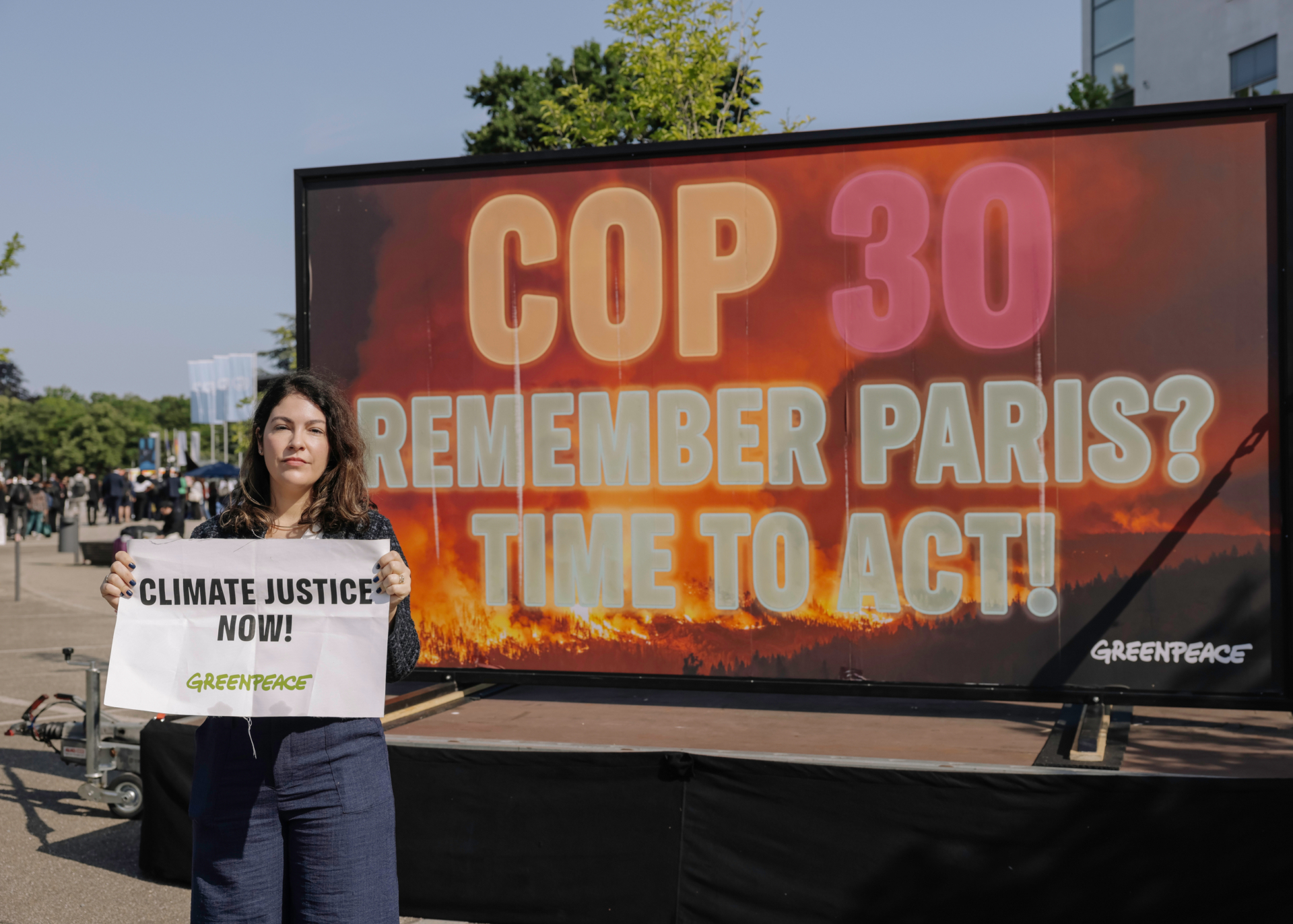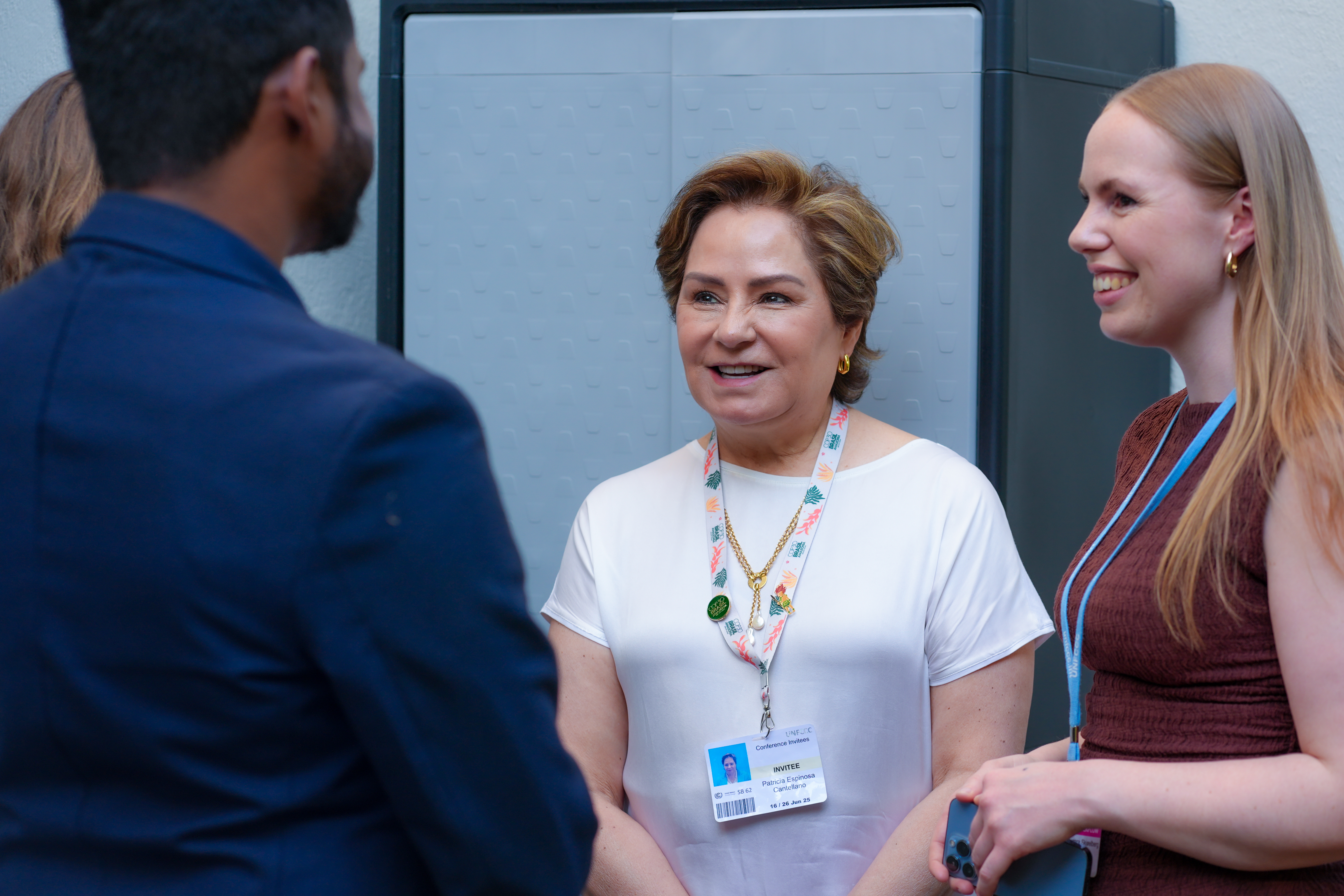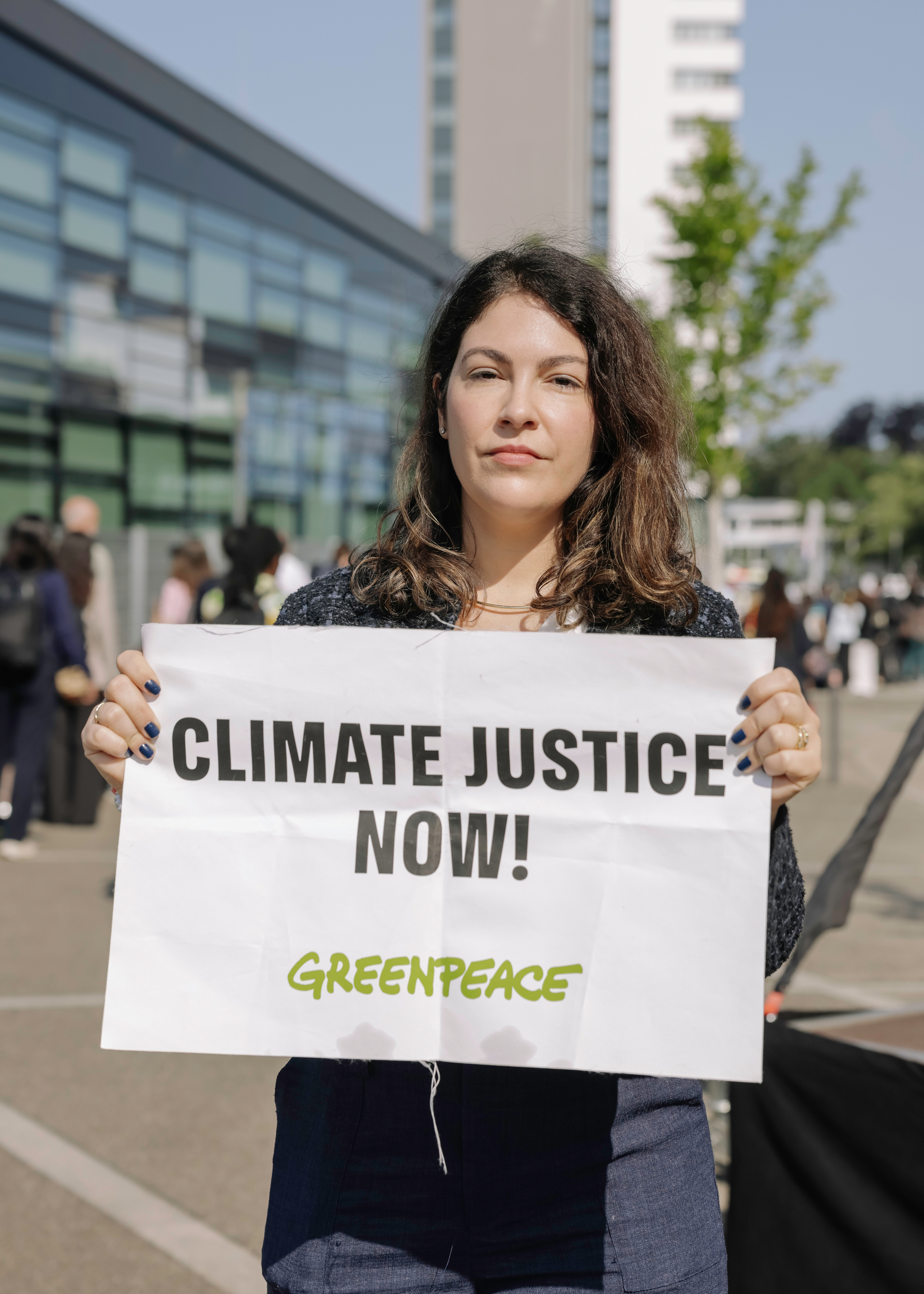Ane Aurora Skjølberg Serreli, Policy Advisor at the Norwegian Forum for Development and Environment (ForUM), recently returned from the intersessional climate talks in Bonn, Germany. These negotiations serve as a critical milestone on the road to COP30, which will be hosted by Brazil later this year.
“Phasing out fossil fuel production is non-negotiable if we are to limit global warming to 1.5°C, in line with the Paris Agreement. This is agreed upon among civil society across continents,” says Serreli.
Oil producers at a crossroad – Norway and Brazil
Norway is one of the world’s largest exporters of oil and gas, with state-owned Equinor at the center of its petroleum sector. While nearly all electricity comes from renewable hydropower and the country has committed to net-zero by 2050, Norway has no national phase-out plan and continues to approve new oil fields. Together with Australia, Canada, and the USA, Norway is projected to be responsible for 70% of oil and gas expansion by 2035. This raises questions about the legitimacy of Norway's climate leadership.
Brazil, host of COP30, is Latin America’s largest oil producer. Despite generating over 80% of its electricity from renewables, the country is expanding fossil fuel exploration, including in the Amazon. Civil society warns this threatens biodiversity, Indigenous rights, and Brazil’s climate commitments.
During the Bonn sessions, Ane sat down with Anna Maria Cárcamo, Climate Policy Specialist at Greenpeace Brasil. Their conversation explored what’s at stake in the lead-up to COP30, the contradictions facing oil-producing countries like Brazil and Norway, and the urgent need for a global, just transition away from fossil fuels.
Interview with Anna Maria Cárcamo, Greenpeace Brasil
What were your expectations for SB62 in Bonn?
My expectations are that countries can advance in complex negotiations, particularly on the UAE Dialogues on the implementation of the COP28 Global Stocktake decision, which includes the transition away from fossil fuels, as well as on just transitions and on adaptation, so they can adopt strong decisions at COP30.
These decisions must be aligned with science, keeping the global temperature increase at 1.5 c, and reflect the urgency we need and climate justice. The clock is ticking and we are getting closer and closer to 1.5c and to global tipping points, and we need to act to maintain a safe climate and protect the future of humanity.
What similarities do you see between Norway and Brazil as oil-producing countries?
Both countries are oil producing and have national corporations which have the important mission and responsibility to shift to being energy companies, focusing on renewable energy and transitioning away from fossil fuels in a just way, while providing sustainable social and economic benefits to society. Brazil already has most of its energy from renewable sources, so it is well positioned to move forward with the transition.
Yet, Brazil is at a crossroads between a historic opportunity to consolidate its global climate leadership, and furthering exploration of fossil fuels is hindering that potential.
While the country commits itself to climate targets and diplomats work towards ambitious climate agreements, the National Petroleum Agency advanced with an auction for fossil fuel extraction, including in the Amazon Basin, ignoring the ecological importance of that area and the calls of civil society and of Indigenous and Traditional Peoples. This must shift, and Brazil has the opportunity to show coherent leadership at COP30.
Like Norway, Brazil wants to lead on climate. Yet both are opening new oil projects. How is Brazilian civil society responding, and what challenges do you face?
Brazilian civil society understands that new oil extraction goes against the decision all countries made to transition away from fossil fuels, which must happen in every country. A challenge faced is that the government argues that as a developing country, Brazil needs the resources from oil extraction to promote the just transition.
We strongly disagree and believe that there is another way to develop sustainably, promoting equity and energy security without continuing to pollute the environment and putting current and future generations at risk.
Foreign corporations are taking advantage of this, including Equinor. They recently opened up a new, massive gas field in Brazil. The auction in Brazil last week also lead to 19 blocks auctioned to explore oil in the Amazon Basin, including national public company Petrobras, as well as foreign corporations ExxonMobil, Chevron Brasil and CNPC.
How does oil extraction in the Amazon affect Indigenous rights and ecosystems?
Pursuing oil exploitation in such a fragile and complex region — where knowledge about marine dynamics remains limited — also puts thousands of artisanal fishers, indigenous peoples and other traditional communities at serious risk.
Many communities depend on the Amazon’s coastal and mangrove ecosystems for their livelihoods, harvesting fish and shellfish that sustain local economies and food security across northern Brazil. Authorizing oil exploration without fully understanding or mitigating these risks could jeopardize both biodiversity and human well-being.
Brazil’s own NDC recognized the importance of moving away from fossil fuels and creating international agreements on timelines, which must advance.
Why should developing countries like Brazil contribute to phasing out fossil fuels?
We understand that as a developing country, Brazil needs international support and is not responsible for transitioning away from fossil fuels before other countries. However, the argument of the need for development cannot be an excuse to continue extracting fossil fuels. We have more technology and pathways for development that can provide socioeconomic welfare for Brazilian society through sustainable development, along with climate justice.
All countries must commit to the just transition and move towards it together, including the transition away from fossil fuels, while providing sustainable jobs and more energy access.
Brazil’s own NDC recognized the importance of moving away from fossil fuels and creating international agreements on timelines, which must advance.
Additionally, global decarbonization means fossil fuel assets will lose value and become stranded assets as part of the green energy transition. Investing in oil today means anchoring the country to a past that no longer serves its future.
Do you have a message for a Norwegian audience or Norwegian politicians?
All countries, especially wealthy countries from the Global North as Norway must listen to science and act now. We know for a fact that the world has found far more fossil fuels than we can ever extract within any reasonable climate scenario. If a wealthy, democratic country like Norway cannot ensure a just phase out of fossil fuels – then who can? Norway has a massive opportunity to make a difference in the world. It should go fourth and set a good example globally, showing the world that it is possible, even economically beneficial, to transition away from fossil fuels.

 Policy Adviser at ForUM, Ane Aurora Skjølberg Serreli, with Amb. Patricia Espinosa, Special Envoy for COP30 to Latin America and the Caribbean and former Executive Secretary of the United Nations Framework Convention on Climate Change (UNFCCC). Photo: Pape Camara.
Policy Adviser at ForUM, Ane Aurora Skjølberg Serreli, with Amb. Patricia Espinosa, Special Envoy for COP30 to Latin America and the Caribbean and former Executive Secretary of the United Nations Framework Convention on Climate Change (UNFCCC). Photo: Pape Camara. Anna Maria Cárcamo, Climate Policy Specialist at Greenpeace Brasil at SB62 in Bonn. Photo: Greenpeace Brasil.
Anna Maria Cárcamo, Climate Policy Specialist at Greenpeace Brasil at SB62 in Bonn. Photo: Greenpeace Brasil.